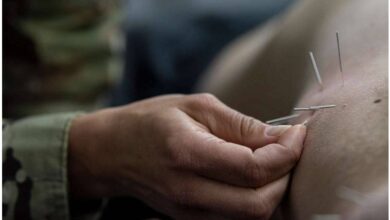The Benefits of Intensive Outpatient Programs (IOPs) for Addiction Recovery

When confronting addiction, the path to recovery is as crucial as the willingness to begin the journey. IOPs offer a structured yet flexible approach to substance abuse treatment that aligns with the complexity of individual needs. These programs provide therapy and support while accommodating daily life activities, making them an accessible choice for many. Exploring the benefits of IOPs can illuminate why they are increasingly popular among those seeking help. Below, we delve into the essential aspects and merits of IOPs for addiction recovery.
Understanding IOPs for Addiction Recovery
IOPs are therapeutic options designed for people who require a significant level of care but do not need around-the-clock supervision. This treatment model blends regular counseling and life skills workshops with a less restrictive environment than inpatient care. IOPs can be the next step after residential treatment or a powerful start for those who need substantial support without full hospitalization.
These programs typically involve several hours of therapy per week, which may include individual, group, or family counseling. The structured schedule allows individuals to apply what they learn in real time, providing a practical aspect to recovery that inpatient settings may not offer. Attention to mental health and relapse prevention strategies are core aspects, as is the continuity of care, which spans the critical early months of recovery.
Selecting the right intensive outpatient program in Austin could well be a life-changing decision. Treatment centers offering IOP understand the dynamics of addiction and prioritize clients’ mental, emotional, and physical wellness. The benefits of participating in an IOP include a comprehensive treatment plan tailored to the individual’s specific struggles in the context of substance abuse.
Maintaining Life Responsibilities While in Recovery
One significant concern for those considering addiction treatment is the impact on their everyday lives. IOPs address this issue directly by enabling participants to maintain their home, work, and social lives while receiving treatment. This integration plays a pivotal role in the real-world application of coping skills and relapse prevention strategies.
By continuing to handle life responsibilities during treatment, individuals learn to balance their recovery with everyday stressors. This teaches them to apply newfound strategies in the same environment where triggers and challenges are present. It is a practical approach that underscores the importance of adaptability and resilience in maintaining sobriety.
This arrangement can also benefit family dynamics, as attendance in an IOP allows individuals to stay connected with loved ones. Family involvement improves the recovery process by building supportive home environments and educating family members about the nature of addiction and the importance of healthy boundaries and communication.
The Role of Community and Support Networks in Outpatient Care
Community and peer support are fundamental components of successful addiction recovery, and IOPs excel in fostering these networks. Group therapy sessions allow individuals to connect with others who face similar challenges, creating a shared experience that can be extremely reinforcing and comforting.
Peer support not only offers solace but also acts as a valuable resource for practical advice and strategies. By witnessing the successes and setbacks of others, individuals are offered a broader perspective on the nature of addiction and recovery. This environment empowers learning and accountability, enhancing personal development and commitment to sobriety.
Moreover, outpatient programs frequently facilitate connections to community resources, such as 12-step groups or other support meetings. Such resources provide continuity of care and community engagement beyond the time-limited nature of formal programs. Recovery is a lifelong process, and these networks can be accessed indefinitely, serving as a constant source of support.
Cost-Effectiveness and Affordability of IOPs
The financial aspect of addiction treatment cannot be overlooked, and IOPs often present a more cost-effective alternative to residential care. The decrease in costs stems from the non-residential structure, eliminating the expenses associated with inpatient housing and around-the-clock supervision. This financial accessibility broadens the availability of professional support to a more extensive portion of the population.
Despite the lower costs, IOPs do not compromise the quality of care. Participants still receive expert services and evidence-based treatments but in a more flexible and economically feasible format. This allows for long-term engagement in care without the daunting financial burden that inpatient programs might incur.
Altogether, the benefits of IOPs for addiction recovery are manifold. Offering flexibility, personalized care, and the ability to maintain life’s responsibilities, IOPs support individuals in rebuilding their lives within the framework of their existing commitments. The cost-effectiveness of this treatment option also makes it an accessible choice for many seeking help with addiction, providing a feasible and supportive step toward lasting sobriety.
Keep an eye for more latest news & updates on Usa Tech Magazine!





